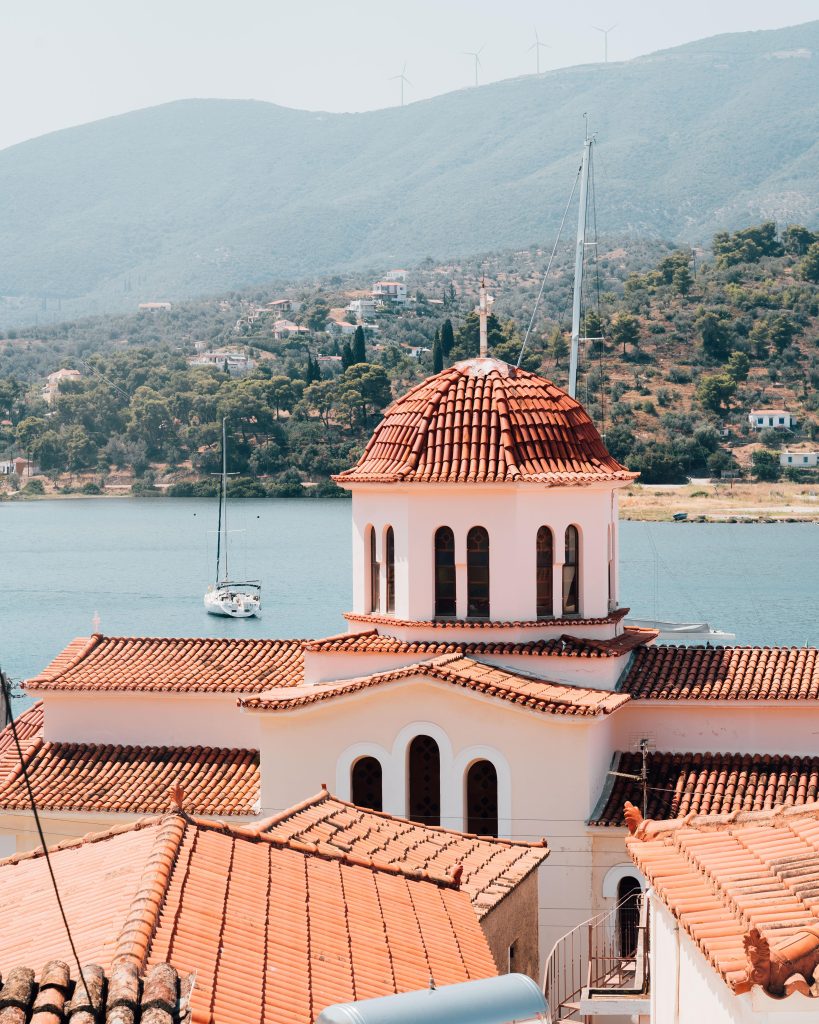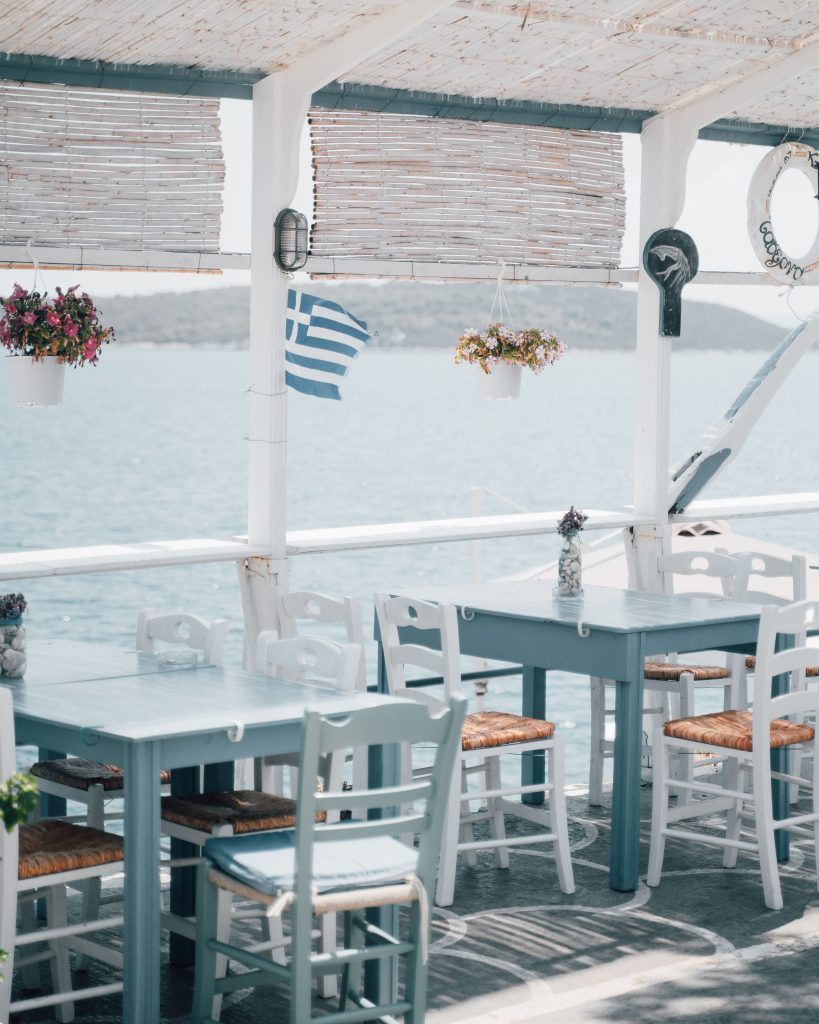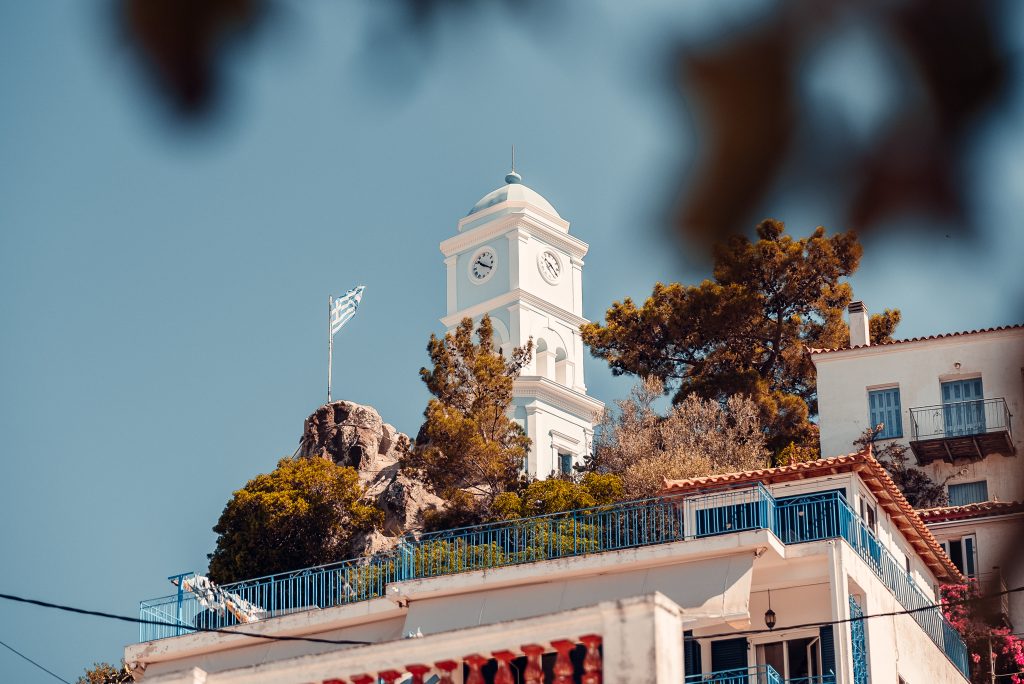THE MAGIC OF BEING GREEK
By Yacht Week
Posted on 13th June 2024
When you think of Greece, what comes to mind? The rise of democracy? The Olympic Games, ancient history and philosophy, Minotaurs and mythology? Perhaps you think of magnificent temples, the clear waters of the Aegean Sea, sandy beaches, mountain villages, or small windy roads blocked by sheep and goats. Greece is also known as the birthplace of Western civilization. Get to know what Greece is really like before you step foot in this wonderful place, and feel right at home.

#1 Greeks are proud of their culture:
This may be new for anyone who doesn’t know anyone from Greece or has never been to Greece in their lifetime, but Greeks are indeed a proud nation. The strong legacy of Ancient Greece lies at the core of the nationwide pride and the plethora of monuments and landmarks still visible today are only a few reminders of the country’s glorious past.
#2 Greek Weddings are the ultimate family gathering:
Greeks, as a culture, are extremely family-orientated. Everything revolves around the family. Everyone is seen to be related to everyone else, and so celebrations such as weddings and baptisms can result in a guest list of over 1,000 people! When you’re invited to a wedding, your immediate family is invited, too — children included. A typical wedding ceremony begins between 6 and 8 p.m. with a religious service conducted by a Greek Orthodox priest followed by the Greek glenti (party) with live music and an abundance of Greek specialties such as lamb, pork, spaghetti, rice, tzatziki, salads, and wine. Everybody dances, from the oldest grandpa or grandma, right down to the youngest, who can barely walk. It seems Greeks were born with a passion for dancing. Don’t be surprised to see the priest on the dance floor, too!
#3 Military Service is mandatory for Greek men:
Between the ages of 18 to 24, all Greek men must serve a minimum of 12 months in the military. They have the option to either serve after graduating from high school before they move on to study at a university or after the completion of their college degree. The penalty for not serving is imprisonment. The first six weeks of military service is basic training ending with a “swearing of the oath” ceremony in the presence of families and friends.

#4 Name Days: Celebrating ancestry:
Name day celebrations are more common than birthdays in Greece. Throughout the year, the Greek Orthodox Church dedicates certain days of the year to celebrate its saints or martyrs. Most Greeks are named after a saint or martyr, so, on the designated saint’s day, if you’re named after that same saint, you’ll celebrate that day, inviting family and friends to celebrate with you. But how do Greeks choose names for their children? Tradition has it that children are, more commonly than not, named after their grandfathers or grandmothers.
#5 Socialising - The Greek way of life:
Much of Greek life is lived outside of the house. Socialising with friends is central to life in the community. For instance, going out for a coffee is a daily ritual for Greeks, both young and old. The younger generation enjoys coffee and pastries in the more modern cafés, while the older generation prefers the kafeneio — old traditional cafés which have existed for decades and continue to be the meeting point for elderly men. Kafeneios are in abundance throughout Greece, in every village and town, and while everyone is welcome and treated courteously, it remains a place mainly for men. They’re places where they spend their mornings chatting, reading the newspaper, playing cards or backgammon, discussing politics, and drinking raki (homemade brew).
#6 Religion here is of upmost importance.
Most Greeks identify as Orthodox Christians and this highly influences the society as a whole. Nearly every Greek village has its own church, which also serves as a meeting point for the villagers. There are also plenty of chapels on top of mountains and on the edge of cliffs, offering spectacular views. If you have the chance to visit a Greek church or chapel, please feel free to do so regardless of your beliefs or religion. Just make sure to wear conservative clothing—no shorts or trousers, and not showing too much skin.

#7 Greeks start slow but always end with passion:
Some call it procrastination, some laziness. Whichever it is, there is certainly some truth in this statement. Take the months leading up to the summer Olympic Games of 2004 for example. After years of talks and preparation, the country was severely behind schedule six months prior, but in the end, everything came through for the Games and the international community was amazed.
#8 Greeks love to eat together:
As they are social and hospitable, Greeks like to get together to share a meal. Whether you are lost in the mountains and find yourself in a small village with only one taverna, you will be surprised by a free bottle of wine offered by a local or the owner of the taverna. And if you are lucky enough to be invited to a family dinner, don’t be surprised if the meal lasts a few hours, until everyone swears they will start a diet soon.